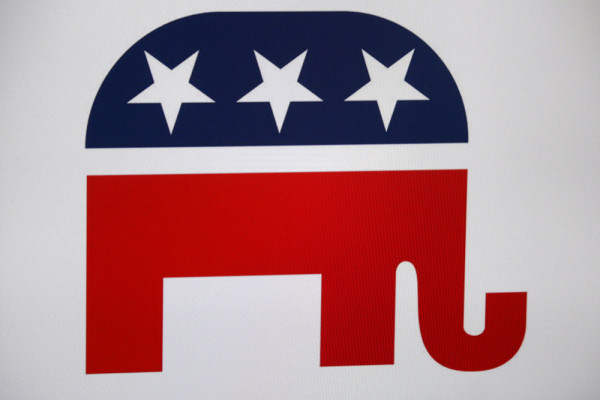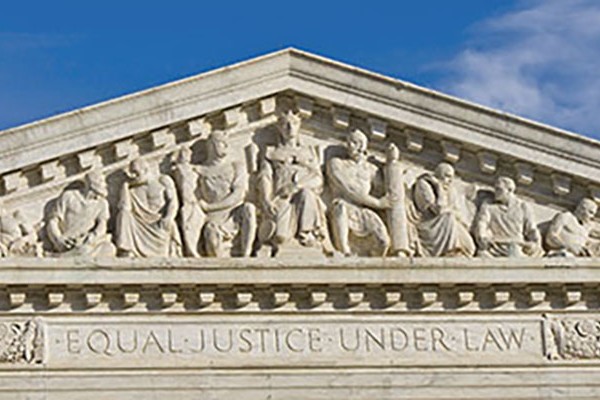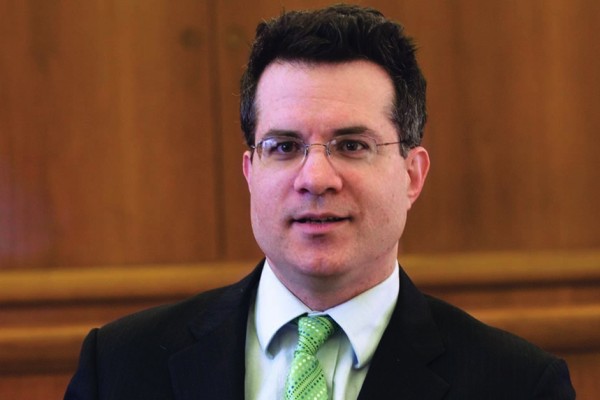WashU Expert: Brokered convention would be disaster for Republicans
As the Republican Party continues to roll toward selecting its presidential nominee, some party leaders and members of the media have begun to speculate about the possibility of a brokered convention. Such a move would almost certainly hurt the Republicans in the general election, said Washington University election law and constitutional law expert Greg Magarian.
WashU Expert: Zubik v. Burwell could be knockout punch to contraceptive mandate
Zubik v. Burwell, a new challenge to the contraceptive mandate in the Affordable Care Act, wants to deliver a knockout punch to the mandate, according to Elizabeth Sepper, associate professor of law and an expert on health law. At stake is whether employees of religiously affiliated organizations such as universities, hospitals and charities, can be stripped of their rights to contraceptive coverage.
WashU Expert: Proposed Missouri law revoking scholarships violates First Amendment
Two Missouri legislators have proposed a bill that
would require public universities and colleges to revoke scholarships
held by student-athletes who refuse to play, or incite, support or
participate in a strike. The proposed law violates the First
Amendment of the United States Constitution, says an expert on freedom
of speech at Washington University in St. Louis.
‘Hobby Lobby’ decision will have far-reaching effects, unintended consequences
Today’s U.S. Supreme Court decision in the Hobby Lobby case is the corporate equivalent of the road to Damascus, says Elizabeth Sepper, JD, associate professor of law at Washington University in St. Louis. “Many more corporations will find religion to opt out of regulation that affects their bottom line,” Sepper says. “Before Hobby Lobby, businesses lost claims to fire pregnant women, refuse to promote non-Christians, discriminate against gays, and pay below the minimum wage. “After Hobby Lobby, they seem likely to succeed.”
SCOTUS decision dooms campaign finance regulation as we know it
The U.S. Supreme Court, in the McCutcheon v. FEC decision, removed the cap on the number and amount of donations a person can give during political campaigns. Gregory Magarian, JD, election law expert and professor of law at Washington University in St. Louis, says that this decision will have a major impact on campaigns – a much bigger impact than the earlier Citizens United campaign finance decision. This decision “marks then end of campaign finance regulation as we know it,” says Magarian.
New SCOTUS brief argues Hobby Lobby’s request is unconstitutional
The popular arts and crafts store Hobby Lobby is seeking a religious exemption from covering certain forms of contraception it would be required to provide under the contraception mandate of the Affordable Care Act. The case is headed to the Supreme Court, with oral arguments set to begin this spring. “Granting the exemption would shift the cost of accommodating Hobby Lobby’s religious exercise to employees who do not share its beliefs,” argues Elizabeth Sepper, JD, associate professor of law at Washington University in St. Louis. “Such cost-shifting violates the Establishment Clause.” Sepper is one of several experts who have authored an amicus curiae brief to the Supreme Court arguing the unconstitutionality of Hobby Lobby’s request.
SCOTUS preview: First Amendment expert on legislative prayer and the “mistakes of the past, present and future”
The Supreme Court is expected to rule this spring on whether prayers before town hall meetings violate the First Amendment clause that prohibits the establishment of religion. John Inazu, a First Amendment expert and professor of law at Washington University in St. Louis, highlights one dimension of the litigation often unaddressed by commentators: what he calls the “mistakes of the past, present and future” adopted by proponents of legislative prayer.
SCOTUS preview: First Amendment expert supports rights to speech, assembly in Supreme Court brief
Anti-abortion groups are well known for demonstrating and sidewalk counseling at women’s reproductive health facilities, but a Massachusetts statute criminalizes even peaceful expression on public sidewalks near these clinics. An upcoming U.S. Supreme Court case will determine the constitutionality of Massachusetts’ selective exclusion law, which applies only to streets and sidewalks near reproductive health-care facilities. “If Massachusetts can close off the sidewalks surrounding reproductive health centers to peaceful expressive activity, then the government can prohibit expression in a wide range of circumstances,” says John Inazu, JD, First Amendment expert and associate professor of law at Washington University in St. Louis.
Immediate effect of DOMA decision profound
The Supreme Court today struck down the federal Defense of Marriage Act (DOMA) and rejected a challenge to a lower court ruling that invalidated California’s ban on same-sex marriage, known as Proposition 8. Gregory Magarian, JD, constitutional law expert and professor of law at Washington University in St. Louis, says that the immediate effects of these decisions for same-sex couples will be profound. “The demise of DOMA means that the federal government must treat same-sex couples, legally married under state laws, just like opposite-sex married couples for purposes of federal benefits, tax status, etc,” he says. “The nullification of Proposition 8 appears to make marriage available to same-sex couples in the nation’s largest state, under a prior marriage law that Proposition 8 had purported to invalidate.”
SCOTUS decision kills “most successful weapon” against racial discrimination in voting
The Supreme Court’s decision in Shelby County v. Holder
effectively kills the most successful weapon our nation has ever
produced against racial discrimination in voting, says constitutional
and election law expert Gregory Magarian, JD, professor of law at
Washington University in St. Louis. He says the Court’s decision reflects a victory
for two big ideas: state power, at the expense of racial justice; and
judicial power, at the expense of democracy.
View More Stories



